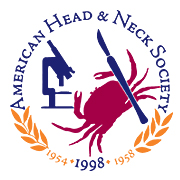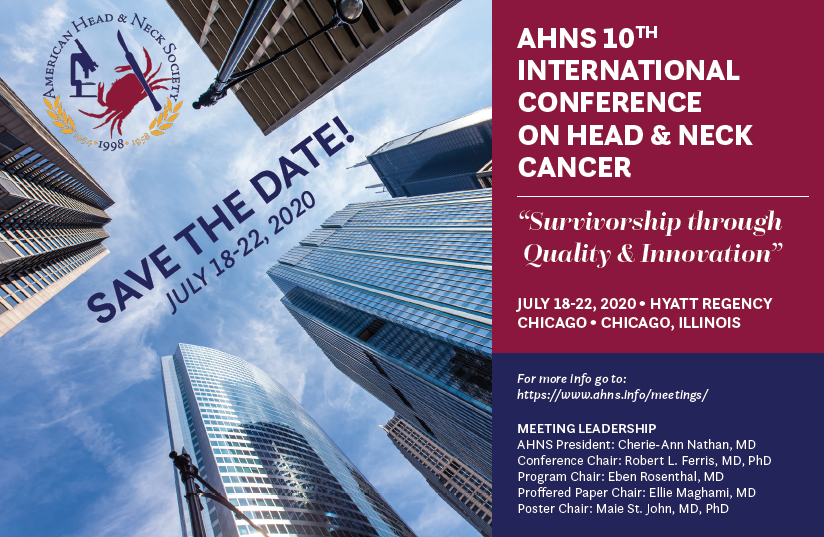AHNS 2021 International Conference
AHNS Call For Abstracts is Now Open Submission Deadline: December 4, 2020 – 5:00 PM PT You are invited to submit abstracts to the AHNS 10th International Conference on Head and Neck Cancer: “Survivorship through Quality and Innovation” taking place on July 22-25, 2021 at the Hyatt Regency Chicago in Chicago, Illinois. All abstracts, even if previously submitted …


